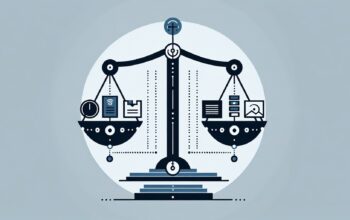I remember sitting in my second-year Data Structures exam, absolutely crushing it. I got a 92. I could recite Big O notation, explain AVL trees, regurgitate every algorithm we’d been taught. I felt smart walking out of that exam hall.
Two weeks into my first job, I had no idea what I was doing.
My manager asked me to debug a production issue. I froze. The code didn’t look like the clean, theoretical examples from my textbooks. It was messy, real, and nothing in my degree had prepared me for the panic of fixing something that thousands of users depended on. I spent three hours on what an experienced developer would’ve solved in twenty minutes. That was my first real education.
That’s when it hit me: the system wasn’t measuring what actually mattered.
How We Got Here
This didn’t happen by accident. There’s a logic to it, and understanding that logic is the first step to questioning it.
Go back about 150 years. The Industrial Revolution needed workers. Lots of them. And they needed to be standardized, interchangeable parts that fit into a machine. Education followed the same logic. Schools began optimizing for scale and consistency, which meant one thing: everything had to be measurable.
You can measure a test score. You can measure a GPA. You can print a diploma and verify it existed. These are clean, quantifiable outputs. So schools built themselves around producing these outputs.
Then came the post-WWII education boom. Millions of soldiers returning home, employers needing to hire fast, and institutions needing to scale even faster. Credentials became the shortcut. Instead of spending weeks assessing whether a candidate could actually do the job, you could just check: “Do they have the degree?” Problem solved. Efficient. Scalable.
Except it wasn’t actually solving the right problem. It was solving the measurement problem, not the competence problem.
Why the System Locked In
Here’s where it gets interesting and frustrating.
Competence is genuinely hard to measure. How do you grade creativity? How do you test someone’s ability to learn something they’ve never seen? How do you evaluate whether someone can actually think through a complex, real-world problem under pressure? You can’t, not easily. It’s messy and subjective.
Credentials? Easy. Pass or fail. GPA. Test scores. All quantifiable. All easy to grade, compare, and rank.
So schools optimized for what they could measure. And they still do.
Then employers came along and faced their own problem: how do you quickly filter through thousands of applicants? You can’t assess everyone’s actual competence in an interview. So you use the proxy that’s easiest to verify: the degree.
And here’s the trap: once employers started hiring by credentials, schools had even more incentive to teach for credentials. Why? Because students needed credentials to get jobs. So the system fed itself. Schools teach what gets measured. Students chase credentials because that’s what employers want. Employers hire by credentials because that’s what’s available to check. Round and round.
Nobody’s trying to be evil here. Everyone’s just optimizing for what’s easiest to measure. But the thing you’re optimizing for isn’t the thing that actually matters.
What We’re Actually Measuring
Let me be clear: I’m not saying degrees are worthless. I have one. It opened doors.
But here’s what a degree actually measures: your ability to sit through lectures, memorize content, pass exams, and follow institutional rules for four years. That’s it. It measures compliance and recall, not competence.
Real competence looks different. It’s the ability to debug a problem you’ve never seen before. To learn a new framework in a week because you understand the principles underneath. To take feedback and iterate. To ship something imperfect but functional while you figure out the rest. To ask the right questions when you’re stuck. To know what you don’t know.
None of that is measured by your GPA.
In fact, the system often punishes these things. Asking questions in class? Might hurt your grade if the teacher wanted answers, not inquiry. Shipping imperfect work? That’s a fail, not a learning moment. Learning on your own time outside the curriculum? Doesn’t show up on a transcript.
The Self-Perpetuating Cycle
What’s wild is that everyone involved knows this is broken. I’ve talked to hiring managers who admit they can’t assess real competence from a resume. I’ve talked to professors who know their grading system doesn’t reflect student capability. I’ve talked to students who feel the disconnect between what they’re learning and what they’ll actually need.
But the system is too entrenched to question. It’s easier to keep doing what’s always been done than to figure out something better. Credentials are the currency everyone understands. Changing that would require coordination across schools, employers, and the entire hiring industry. So we all keep playing the game.
The result? We’ve built a system that reliably produces people with credentials and unreliably produces people with competence. And we’ve confused the two.
Why This Matters
Here’s the thing: if you’re betting your future on credentials alone, you’re making the same bet schools and employers are making. And that bet is getting worse.
Technology changes fast. What you learned in a textbook three years ago might be obsolete. A degree that took four years to earn becomes outdated. But competence, actual problem-solving ability, the skills to learn and adapt, those don’t become obsolete. They’re what gets you through when the world changes.
And yet we’ve built a system that prioritizes the thing that decays and deprioritizes the thing that lasts.
What Comes Next
This series is about unpacking that contradiction. We’re going to look at what we’ve sacrificed in the name of measurability. We’re going to examine where this system breaks down hardest. And we’re going to explore what actually builds competence.
Because here’s what I learned: the most valuable skills I have didn’t come from my degree. They came from building things. From failing and learning why. From working with people who knew more than me. From shipping code that broke and having to fix it.
My degree gave me a credential. Experience gave me competence. The system made me chase one and hope the other would follow. It shouldn’t have to be that way.
Tomorrow, we’ll dig into what actually gets lost when institutions optimize for measurement instead of mastery.







